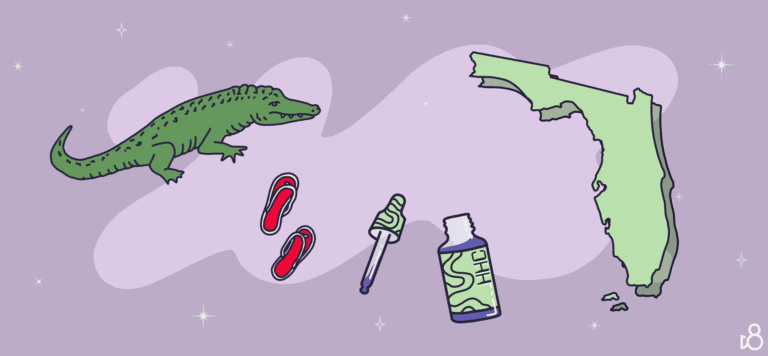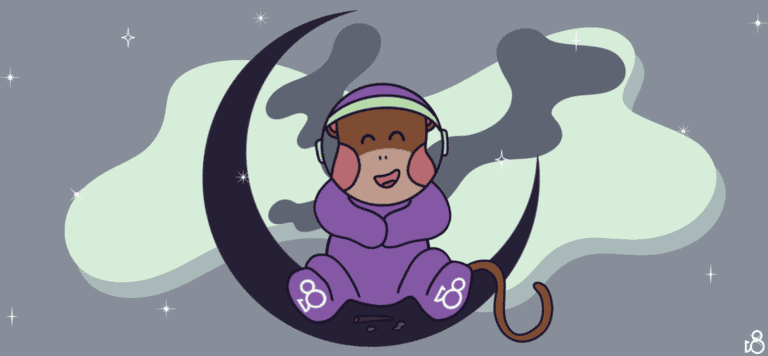Full Spectrum CBD vs Delta 8: Understanding Effects and Benefits
Diving into the vast world of cannabis, I discovered some pretty awesome molecules, all with their own superpowers. Today, we’re putting the spotlight on two heavy hitters: **Full Spectrum CBD** and **Delta 8 THC**. With Full Spectrum CBD, you get a whole team of cannabinoids, terpenes, and flavonoids straight from the plant. It’s perfect for anyone wanting to soak up all the goodness hemp has to offer. This superhero plays nice with our body’s endocannabinoid system, helping keep things chill and balanced, all while keeping your head clear. Stick with me, and find out how these compounds could totally change the game for your wellness routine.
Table of contents
- Understanding Cannabinoids
- The Legality of Hemp Derivatives
- What is Full Spectrum CBD?
- Delta 8 THC: An Overview
- Comparing the Effects
- Product Varieties and Uses
- Testing and Regulation
- Frequently Asked Questions
- What are the primary differences in effects between Full Spectrum CBD and Delta-8 THC?
- Can Full Spectrum CBD provide the same euphoria as Delta-8?
- How do the potential health benefits of Full Spectrum CBD compare with those of Delta-8?
- What are the legal considerations regarding Delta-8 and Full Spectrum CBD products?
- Which is more suitable for pain management, Delta-8 or Full Spectrum CBD?
- How does the potency of Delta-8 THC compare to Full Spectrum CBD?
On the other hand, Delta 8 THC, a lesser-known cannabinoid compared to its more famous counterpart Delta 9 THC, is gaining attention for its unique properties. Research suggests that Delta 8 THC offers a smoother, less potent psychoactive experience while still imparting the therapeutic benefits associated with THC, such as nausea relief and appetite stimulation. Unlike Full Spectrum CBD, Delta 8 THC’s psychotropic effects can alter perceptions, which may be desirable or undesirable, depending on the individual’s needs and context.
When assessing Full Spectrum CBD versus Delta 8 THC, my approach centers on understanding their molecular intricacies and how they interact with our bodies. I value clarity on how these compounds might influence wellness, and I aim to present facts that help in making informed choices, whether one is seeking symptom relief or exploring the nuanced spectrum of hemp-derived products.
Understanding Cannabinoids
In exploring Full Spectrum CBD versus Delta 8, I find it imperative to clarify the fundamental components and interactions of cannabinoids within the human body.
Defining Cannabinoids
Cannabinoids are a group of active compounds found in the cannabis plant. Among the most discussed in my findings are tetrahydrocannabinol (THC) and cannabidiol (CBD), along with others like cannabinol (CBN), cannabigerol (CBG), and cannabidivarin (CBDV). These compounds are known as phytocannabinoids because they are plant-derived. They mirror the effects of endogenous cannabinoids—naturally occurring compounds in the human body—by interacting with the endocannabinoid system (ECS).
- THC (Delta 9-THC): The most well-known cannabinoid, associated with the psychoactive effects of cannabis.
- CBD (Cannabidiol): Non-psychoactive and known for its potential therapeutic benefits.
- CBN (Cannabinol): Generally arises from the degradation of THC, with a mild psychoactive effect.
- CBG (Cannabigerol): The non-psychoactive precursor from which many other cannabinoids are synthesized.
- CBDV (Cannabidivarin): Similar to CBD and is the subject of research for various potential effects.
Cannabinoid Science and the Body
I’ve learned that the endocannabinoid system (ECS) plays a crucial role in maintaining homeostasis in the human body. It does so by interacting with cannabinoids through two main types of receptors, CB1 and CB2. These receptors are located throughout the body but are most prevalent in the central nervous system and the immune system, respectively.
- CB1 Receptors: Primarily found in the brain and nervous system, and to a lesser extent in other tissues.
- CB2 Receptors: Mostly found in peripheral tissues, especially cells associated with the immune system.
The ECS engages in various physiological processes, including pain sensation, mood regulation, and immune function. When cannabinoids like Full Spectrum CBD or Delta 8 enter the body, they bind to these receptors, mimicking the effects of the body’s own endocannabinoids, thus influencing the ECS’s response.
Full Spectrum CBD products contain a range of cannabinoids and terpenes that occur naturally in cannabis, while Delta 8 refers to delta-8-tetrahydrocannabinol, a less potent analog of the classic delta-9-tetrahydrocannabinoil. Understanding the specific interactions of these cannabinoids and their effects on the CB1 and CB2 receptors is crucial in discerning their potential benefits and distinctions.
The Legality of Hemp Derivatives
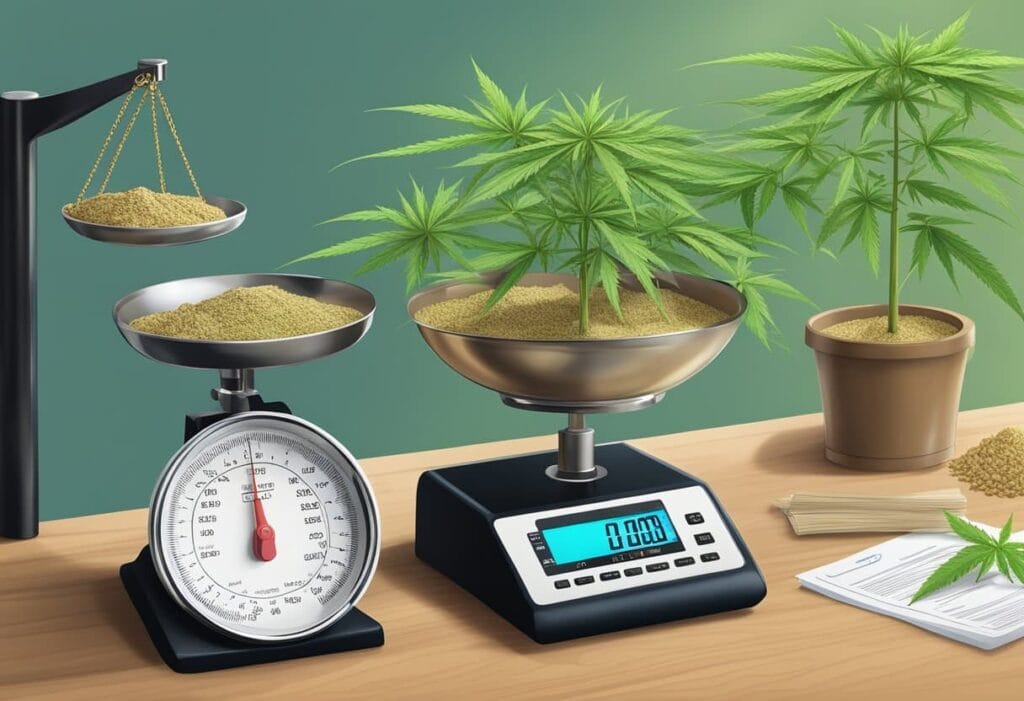
The evolving landscape of hemp derivatives’ legality in the United States primarily hinges on the 2018 Farm Bill and subsequent state interpretations, particularly scrutinizing compounds like Delta 8 and Delta 9 THC.
2018 Farm Bill Overview
Key Fact: The 2018 Farm Bill federally legalized the cultivation of hemp plants and the production of hemp-derived products, providing they contain no more than 0.3% Delta-9 THC on a dry weight basis. This legislation distinguishes hemp from marijuana, removing hemp from the definition of marijuana under the Controlled Substances Act. The bill effectively opened the market for hemp derivatives deemed federally legal under these specific conditions. However, interpretation and enforcement can vary significantly by state.
Delta 8 vs. Delta 9 Legal Status
Hemp-derived Delta 8 THC sits in a grey area. While federally legal if derived from hemp and containing less than 0.3% Delta-9 THC, regulations around it are less clear than for Delta-9 THC. Delta 8 has grown in popularity due to its availability and psychoactive properties, similar yet less potent than those of Delta-9 THC. However, certain states have explicitly outlawed or restricted the use of Delta 8 due to its psychoactive effects and concerns over safety and lack of regulation. For instance, while I cannot confirm the specific legalities without knowing the contents of the page, the legal status of Delta 8 in Tennessee can provide insights for residents or stakeholders in that state.
Conversely, Delta-9 THC is the primary psychoactive component in cannabis. Despite its legalization for medical and recreational purposes in various states, it remains a Schedule I substance under federal law. States have developed their own systems for managing its use, such as the availability of medical marijuana cards in New York. It’s important to recognize that the federal threshold for legality also applies to hemp-derived Delta-9 products. In states where marijuana is illegal, such as Georgia, there’s an intricate balance between federal and state law, with a focus on whether it’s sourced from hemp and its concentration, as described in the exploration of Delta 9’s legal status in Georgia.
What is Full Spectrum CBD?
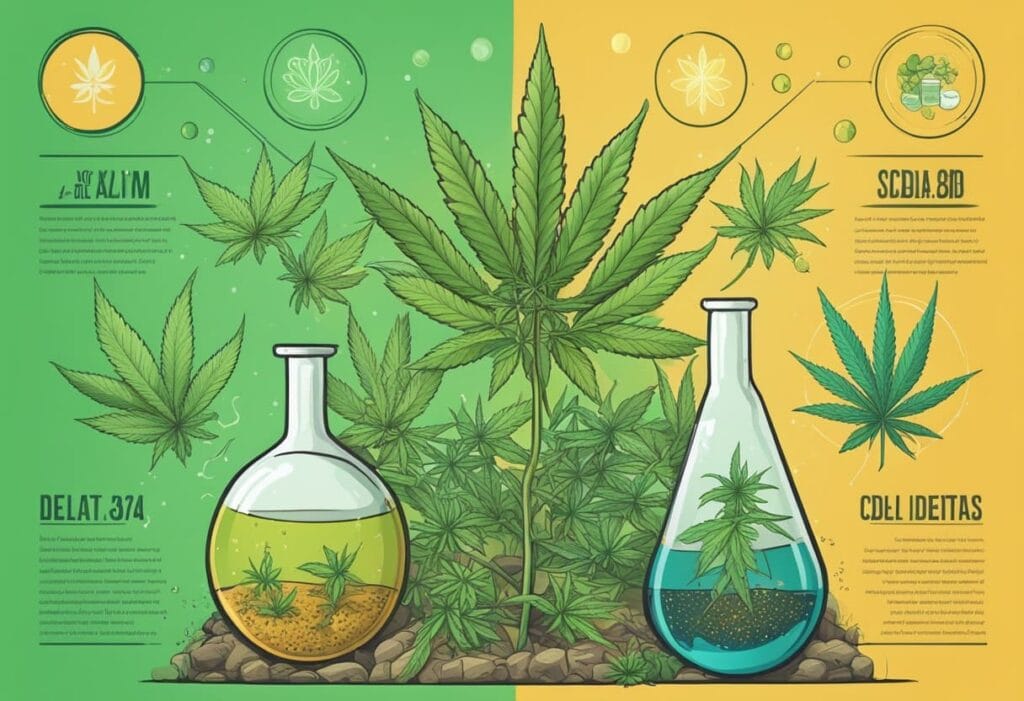
When I discuss full spectrum CBD, I’m referring to an extract that encompasses all naturally occurring compounds from the cannabis plant, including cannabinoids, terpenes, and flavonoids. This type of CBD is known not only for containing cannabidiol (CBD) but also a full array of beneficial elements that work synergistically.
Composition and Extraction
The composition of full spectrum CBD is rich and diverse. During the extraction process, careful methods are used to ensure that the final product includes a wide array of cannabinoids—including trace amounts of THC—essential oils known as terpenes, and flavonoids, which are compounds found in all sorts of plants, contributing to their vivid colors and scents. My focus is on a gentle extraction that maintains the integrity of the plant so that these compounds are not lost or altered.
- Cannabinoids: More than just CBD, including traces of THC, CBG, CBN, etc.
- Terpenes: Aromatic oils that lend scents such as pine, citrus, berry.
- Flavonoids: Compounds that contribute to the color and flavor profile.
Entourage Effect Explained
The entourage effect is a concept I find fascinating. It’s the idea that all components of the cannabis plant—cannabinoids, terpenes, and flavonoids—act in concert to enhance each other’s effects. Think of it as a symphony where the individual instruments come together to create a harmony that is more impactful than any single note played alone. This synergistic relationship particularly amplifies the therapeutic properties of full spectrum CBD, differentiating it from isolates that contain just cannabidiol.
Delta 8 THC: An Overview
Delta 8 THC, a cannabinoid known for its unique psychoactive properties, has been gaining attention in both medical and recreational circles. In this section, I’ll be providing a closer look at the chemical profile and psychoactivity of Delta 8 THC, including its effects on the body.
Chemical Profile of Delta 8 THC
Delta 8 THC, or delta-8 tetrahydrocannabinol, is an analog of THC with a slightly altered molecular structure that gives it unique characteristics. It is one of over a hundred cannabinoids found in the cannabis plant, but in much smaller concentrations compared to Delta 9 THC. Delta 8 THC is often derived from hemp through specific processing methods due to its trace amounts in the plant.
Structurally, Delta 8 possesses a double bond on the eighth carbon chain, whereas Delta 9 THC has this bond on the ninth carbon chain. This slight shift in structure causes it to interact differently with the CB1 and CB2 receptors in the body’s endocannabinoid system.
Psychoactivity and Effects on the Body
As far as psychoactive effects, Delta 8 THC is similar to Delta 9 THC but is generally considered to be less potent. Its psychoactivity can induce relaxation, euphoria, and potentially help manage nausea—attributes that have potential benefits for individuals undergoing treatments, like chemotherapy, that cause severe nausea and loss of appetite.
Despite its lower potency, Delta 8 THC may still produce noticeable effects on the body and mind. It has been reported by some users to provide a clearer high compared to Delta 9, accompanied by anti-anxiety properties. It binds to the CB1 receptors predominantly found in the central nervous system, thereby modulating the psychoactive experience.
In my exploration of Delta 8 THC, it’s important to note that it is often celebrated for its ability to promote a sense of well-being, making it a topic of interest for individuals seeking therapeutic benefits without the intensity commonly associated with Delta 9 THC. For those curious about the variances between different THC variants, there’s comprehensive information on Delta 8, including its molecular nuances and uses.
Comparing the Effects
In evaluating the impacts Full Spectrum CBD and Delta 8 have on various conditions, it is crucial to differentiate between their therapeutic potentials and side effect profiles.
Therapeutic Potential
Full Spectrum CBD has been recognized for its anti-inflammatory properties, often contributing to the alleviation of conditions like chronic pain and inflammation. My experience includes observing its benefits on patients facing anxiety disorders, where its anti-anxiety qualities are particularly promising. The presence of multiple cannabinoids in Full Spectrum CBD appears to enhance its analgesic effects, a phenomenon known as the entourage effect.
In contrast, Delta 8 demonstrates a relaxing effect that may aid with sleep and promote relaxation, without as intense psychoactive experiences compared to its close relative, Delta 9-THC. It might offer relief for individuals with nausea and lack of appetite, making it a potential therapeutic option for conditions associated with these symptoms. Anecdotal evidence suggests its effectiveness in pain relief, which you can read more about in this overview of the Best Delta-8 THC Products for Pain Relief.
Side Effects and Safety
When considering Full Spectrum CBD, side effects are generally minimal. However, it’s possible to experience dry mouth or slight nausea, particularly when taken in high doses. It is essential to note that Full Spectrum CBD is accompanied by a negligible risk of paranoia or significant psychoactive effects.
Delta 8 THC, while considered to have a lower risk of inducing anxiety compared to Delta 9-THC, may still present side effects. Its psychoactive nature can lead to feelings of paranoia and anxiety in some users, particularly those who are sensitive to cannabinoids. Dry mouth and vomiting are also potential side effects, but these are typically less common. For those exploring the use of Delta 8 for anxiety and depression, further insights can be found by looking into Delta 8 For Anxiety and Depression.
Safety is paramount with any substance, and both Full Spectrum CBD and Delta 8 (link here)[https://d8superstore.com/full-spectrum-cbd-vs-delta-8]. Users should start with lower doses and monitor their body’s response to minimize the risk of adverse effects.
Product Varieties and Uses
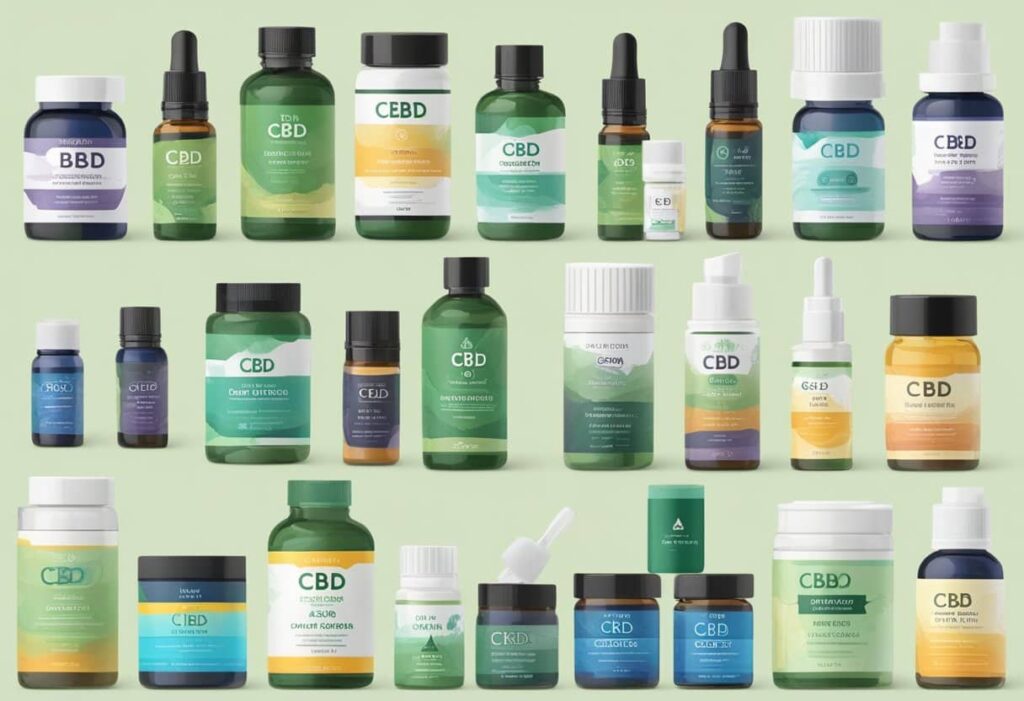
In the ever-evolving world of cannabis products, it’s important to understand the specific options available within Full Spectrum CBD and Delta 8 THC products. These offerings cater to different needs and preferences, with a variety of consumption methods.
Delta 8 THC Products
Delta 8 THC, a cannabinoid known for its clear-headed high and potential health benefits, comes in various forms. Gummies are a popular choice and can be found in gluten and dairy-free options, catering to those with dietary restrictions. For precise dosing, consumers often refer to a Delta 8 dosage chart, which guides usage based on factors like weight and desired effects. Oils are also a versatile product; they can be used sublingually or added to food. Speaking of food, combining Delta 8 with edibles is an art, and certain foods enhance its effects. For those seeking relief from anxiety or sleep issues, several edibles are noted as the best choices for anxiety and insomnia.
- Gummies: Edible forms of Delta 8, often gluten and dairy free.
- Oils: Used sublingually or mixed with food for tailored experiences.
Full Spectrum CBD Options
Full Spectrum CBD encompasses all compounds found in hemp, including a variety of terpenes and cannabinoids that deliver a comprehensive effect. This includes CBD oil, a staple in the CBD market, which possesses the full profile of hemp’s natural compounds. Known for its therapeutic properties without the psychoactive effects of THC, CBD oil can be consumed directly or incorporated into topicals for localized relief. Gummies, like their Delta 8 counterparts, offer a convenient and discreet way to ingest CBD. Full Spectrum CBD is recognized for its potential to support overall wellness, with users often seeking it for its purported benefits in reducing inflammation and anxiety.
- Oil: Can be used alone or in combination with other products like topicals.
- Gummies: A discreet and easy way to consume CBD while on the go.
In choosing between Full Spectrum CBD and Delta 8 THC, understanding the distinct product varieties and their uses is crucial to finding the ideal option for personal health and wellness goals. Whether one opts for the holistic approach of Full Spectrum CBD or the mild psychoactive effects of Delta 8, there are numerous products tailored to meet those needs.
Testing and Regulation

In the rapidly evolving markets of Full Spectrum CBD and Delta 8, understanding the intricacies of testing and regulation is paramount. My focus here is to shed light on the processes involved in ensuring product safety and compliance with legal standards.
Quality Control Standards
Within the cannabis industry, the safety and efficacy of products such as Full Spectrum CBD and Delta 8 are of utmost concern. I adhere to strict quality control standards to verify that the products are free from contaminants such as heavy metals, and to ensure consistent potency. It’s crucial that any cannabinoid product, be it CBD or psychoactive compounds like Delta-9 THC and Delta 8, comes with a guarantee of purity and is derived from the cannabis plant in a manner compliant with regulatory frameworks.
Cannabinoids interact with the body’s cannabinoid receptors, which means that the presence of any unintended substances could have undesirable effects. This is especially important in scenarios such as chemotherapy support, where the quality of cannabinoid products can play a supportive role. Stringent testing helps to maintain the legal status of these compounds, differentiating legal hemp-derived cannabinoids from regulated substances.
Understanding Lab Results
Interpreting lab results is an essential skill that accompanies the consumption of Full Spectrum CBD and Delta 8 products. Product labels may show levels of different cannabinoids, but the proficiency to understand what those levels mean for a product’s legality and effects on drug testing can be critical. For instance, Delta 8 has been known to trigger positive results in drug tests, just as traditional Delta-9 THC products would (How Long Does Delta 8 Stay in Your Urine?).
Lab reports often reveal whether a product is full-spectrum, broad-spectrum, or isolate. Full-spectrum products contain THC, which could be psychoactive at high doses and impact one’s drug test results significantly – knowledge crucial for consumers trying to understand how long does Delta 9 stay in your system. Properly analyzing these reports allows for a more informed use that aligns with individual needs and legal boundaries.
Frequently Asked Questions
In comparing Full Spectrum CBD with Delta-8 THC, there are distinct differences in their effects, legal status, and potential health benefits. As we navigate these questions, I’ll provide factual insights based on current knowledge.
What are the primary differences in effects between Full Spectrum CBD and Delta-8 THC?
Full Spectrum CBD contains a wide range of cannabinoids but has minimal psychoactive effects, whereas Delta-8 THC offers a mild high often described as less intense than Delta-9 THC.
Can Full Spectrum CBD provide the same euphoria as Delta-8?
No, Full Spectrum CBD is not known to induce euphoria as Delta-8 does. Delta-8 binds to the brain’s cannabinoid receptors, resulting in a more pronounced psychoactive experience.
How do the potential health benefits of Full Spectrum CBD compare with those of Delta-8?
Full Spectrum CBD and Delta-8 may share similar benefits due to their interaction with the endocannabinoid system. Studies suggest that both can have therapeutic effects, but Delta-8’s impact on conditions like anxiety and pain may be enhanced due to its psychoactive properties.
What are the legal considerations regarding Delta-8 and Full Spectrum CBD products?
Delta-8 exists in a legal gray area and may not be legal in all states; however, Full Spectrum CBD products are federally legal as long as they contain less than 0.3% THC.
Which is more suitable for pain management, Delta-8 or Full Spectrum CBD?
While Full Spectrum CBD can be effective for pain management, some users find that Delta-8’s analgesic effects are more pronounced due to its psychoactive component.
How does the potency of Delta-8 THC compare to Full Spectrum CBD?
Delta-8 THC is more potent than Full Spectrum CBD in terms of psychoactive effects. Full Spectrum CBD’s potency lies in its entourage effect, which may enhance the therapeutic benefits of individual cannabinoids.



